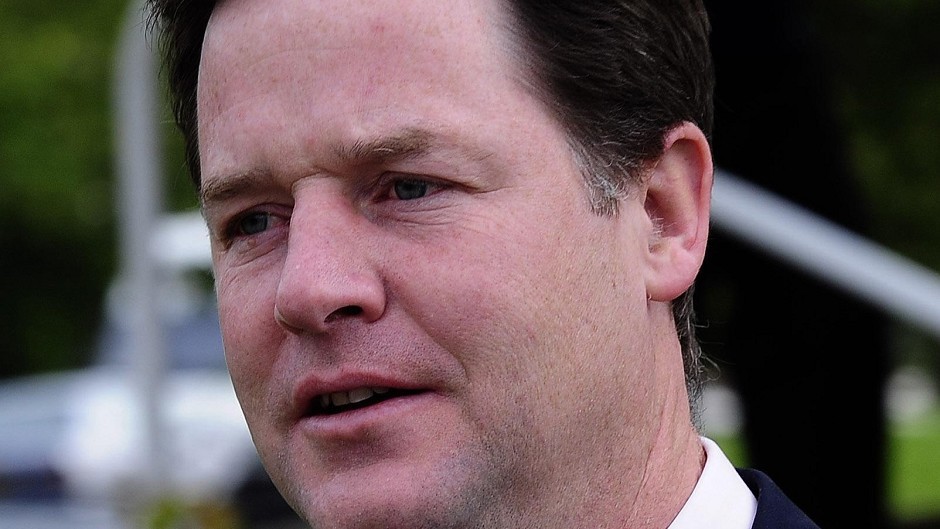Outgoing First Minister Alex Salmond has been compared to a Japanese soldier who believed World War II was still happening years after peace was declared.
Nick Clegg, the deputy prime minister, made the remarks as he called on the SNP leader to accept the result of last month’s independence referendum.
A spokesman for the first minister branded it a “juvenile jibe” last night.
Mr Salmond appeared to open the door to an early re-run of the vote last week, saying “circumstances obviously can change” and that a breach of the pre-referendum “vow” to Scotland could pave the way for another ballot.
Asked about it yesterday, Mr Clegg said: “Alex Salmond reminds me of a Japanese soldier found in the jungle 20 years after the war had finished, still ducking at every shadow, thinking the war was still on.
“At some point, you have to call it a day and accept that the people have spoken.”
The Liberal Democrat leader added: “After a ferociously contested referendum that has dominated debate north of the border for years, not just months, there was a pretty emphatic result.
“Surely, even if we might not agree on a lot, Alex Salmond, myself and others can agree we are democrats and at the end of the day you have to abide by the result.”
Referring to the 2011 ballot on the additional vote electoral system, Mr Clegg said: “I have gone through referenda, which have not quite gone the way that I want.
“You don’t then immediately the next day say you don’t like the result, let’s have another crack at it. That’s not the way we use referenda in this country and we shouldn’t.”
A spokesman for Mr Salmond said: “Nick Clegg’s juvenile jibe ignores the fact that SNP membership has surged since the referendum to be almost double that of the Lib Dems UK-wide – and that the SNP are playing a full and constructive part in the Smith Commission process, and we intend to hold the Westminster parties to their vow to deliver extensive new powers for the Scottish Parliament.”
Hiroo Onoda was a Japanese soldier who remained in the jungle in the Philippines for almost three decades after the war because he did not believe it had ended.
